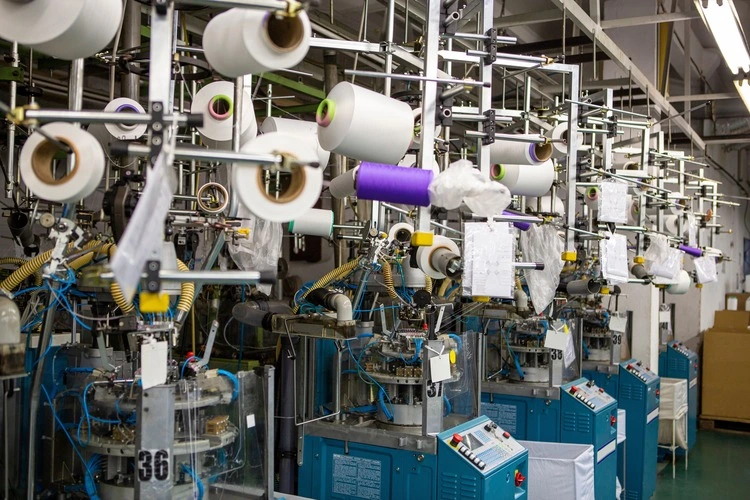
New AI tech used by textile company helps detect fabric defects, reducing water consumption during production
By
AI has been used for countless reasons to protect our planet: from systems created to monitor illegal logging in West Africa, to those that can measure icebergs as they calve to understand rising sea levels. Now, AI has another planet-friendly use: helping the textile industry reduce its water consumption.
Enjoying this article? Check out our related reads:
Huge quantities of water are required in textile manufacturing – whose processes range from bleaching and dyeing, to washing and rinsing, as well as the water needed to produce materials in the first place such as cotton. All in all, the amalgamation of these steps makes the textiles sector one of the most water-intensive industries in the world, with dyeing and finishing processes responsible for almost 20 per cent of global industrial water pollution.
When a product has a defect – such as aesthetic imperfections, misprints or damage – it must go through these processes again, contributing toward extra waste and putting more strain on resources like water.
However, textile manufacturer Etoken Tekstil has a solution: using a real-time AI monitoring system to detect and correct textile defects. Now, identifying defects earlier in production means the company can significantly reduce the amount of re-dying and reprocessing that occurs, cutting down on water consumption.
‘This technology strengthens both efficiency and sustainability in our manufacturing processes,’ said Vice Chairman of the Board of Sun Tekstil and Ekoten Tekstil, Sabri Ünlütürk.
Against the backdrop of a warming climate – with a growing number of droughts impacting communities across the world – conserving water in this way is a vital step to managing what is arguably the world’s most valuable resource.
How else is AI helping the industry?
Elsewhere, AI is being deployed to make textile manufacturing more sustainable. For example, AI can be harnessed to optimise supply chains to reduce overproduction of goods. Using AI analytics offers the industry a way to refine their insights, and can help to accurately predict consumer demand so that overproduction – a significant issue in today’s climate of fast fashion – can be minimised.

Via machine learning, researchers can also begin to develop new, eco-friendly textiles that may have less of an environmental burden in terms of both land and water use.
Another positive application of AI in the textiles sector is in its use for fabric cutting: already, a system has been developed by Cognex Corp that can optimise fabric layouts, adapting patterns during the cutting process to ensure that as little fabric as possible is left over.




